- January 23, 2020
- Posted by: p mulee
- Category:
By Reporter
Scripture says, “Our days may come to 70 years, or 80 — if our strength endures; yet the best of them are but trouble and sorrow, for they quickly pass, and we fly away.”
But one man from affluent Kabete has defied those biblical predictions and on Thursday is turning 100.
Charles Njonjo, the ‘Duke of Kabeteshire’ and Kenya’s first attorney general, will be celebrating in Nairobi.
Njonjo is a formidable, powerful figure in Kenyan history and especially the Independence era when he wielded enormous influence.
He is famous for his eloquence, English mannerisms and fondness for English culture, so fond that he earned the informal, and not entirely complimentary title ‘Sir’ Charles.
The former AG is famous for his striped suits that he states he buys only in London, worn with his signature red rosebud in his lapel.
Njonjo had the ear of founding President Jomo Kenyatta and rode in his limousine.
This was ostensibly because he wanted to ensure the government provided quality services to its citizens, which he said Mzee wanted.
Njonjo was instrumental in elevating Daniel Moi to vice president after Josphat Murumbi resigned in 1967. He and Moi fell out in 1983, when Moi accused him of plotting to overthrow the government.
A son of Senior Chief Josiah Njonjo in 1920 in a family of eight, Njonjo’s life was and still is characterised by affluence and power.
The Kenyan government still takes services to his doorstep, most recently the Huduma Namba.
The no-nonsense former AG praised the initiative of consolidating personal details “as people will not be carrying many documents with them”.
So privileged was the former AG and so charmed his early ears that Njonjo ate ugali for the first time after joining Alliance High School.
In those days Njonjo rode a horse to school — at that time horses were the equine preserve of royalty — after weekend breaks.
At Alliance, he and other boys stood barefoot in assembly as they raised the Union Jack. They wore only khaki shirts and shorts at Alliance.
He dreaded the standard cold showers and the deprivation of meat every day that he enjoyed at home. It was served only twice a week at Alliance.
If life at Alliance was hard, Njonjo would later endure long trips on a congested train coach to get to Fort Hare University, South Africa.
This was at the height of apartheid and natives (blacks) were restricted to one uncomfortable coach, some filled with the stench of sweat and chicken poop.
The man who later became Kenya’s AG endured the extremes of apartheid, carrying with him memories of how he would be barred from dining halls.
On streets, in train stations and at train stops, blacks could not cross a white man or woman’s path.
Njonjo went to Kings College-Budo in Uganda in 1939 for a two-year pre-university course before he proceeded to the South African university.
He spent three years at Fort Hare and later moved to the UK for further studies, attending Exeter University and later the London School of Economics until 1950.
On his return to Kenya in 1954, Njonjo began his carer in the justice system when the colonial government hired him as a High Court registrar.
He was promoted to Registrar General and later moved to the AG’s office as Senior Crown Counsel.
In 1962, Njonjo was promoted to Deputy Public Prosecutor — a step away from the Attorney General’s post, which he occupied after Jomo Kenyatta took over.
This would propel him to become an ex-officio Member of Parliament as Kabete MP and earned him a seat in the Cabine.
He says he took his work so seriously that he married late, at age 52 he married a British woman.
His downfall was engineered by President Moi who saw him as a threat. Previously he supplied suitcases full of Savile Row suits to Moi.
Njonjo does not comment on national politics these days, saying he doesn’t follow the goings-on in the political scene — but he has expressed concern that the quality of civil service has declined.
Recently, Njonjo featured in a video by the Ugandan Wildlife Authority while tracking gorillas at the Mgahinga National Park

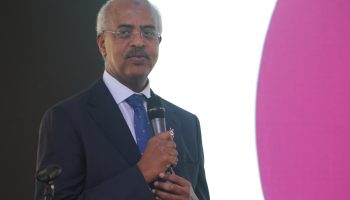




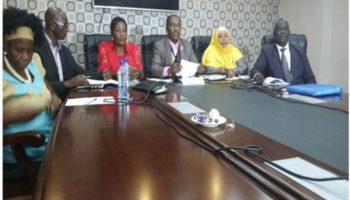
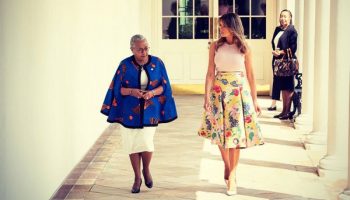



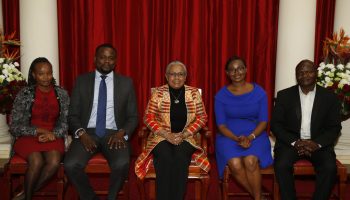


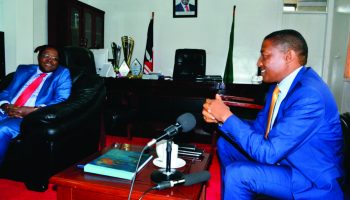

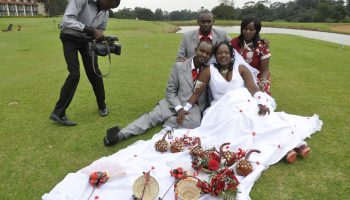
I blog often and I seriously appreciate your content.
The article has really peaked my interest.
I’m going to bookmark your blog and keep checking for new details
about once a week. I opted in for your RSS feed as well.
That is really fascinating, You’re a very professional blogger.
I’ve joined your feed and stay up for in quest of extra of
your fantastic post. Also, I have shared your website in my social networks adreamoftrains webhosting
Very good post. I definitely appreciate this site.
Keep it up!
Yes! Finally someone writes about web hosting.
If you are going for most excellent contents like I do, only
pay a visit this web page all the time for the reason that it
offers feature contents, thanks cheap flights 3gqLYTc
Wow that was strange. I just wrote an really long comment but after I clicked submit my comment didn’t
show up. Grrrr… well I’m not writing all that over again.
Regardless, just wanted to say superb blog!
Hi! I could have sworn I’ve been to your blog before but after browsing through a few of the articles I realized it’s new to
me. Nonetheless, I’m certainly happy I found it and I’ll be book-marking it and checking back regularly!
Attractive component to content. I simply stumbled upon your website and
in accession capital to claim that I acquire actually enjoyed account your blog posts.
Any way I’ll be subscribing on your augment and even I fulfillment you access constantly fast.
You actually make it appear really easy with your presentation but I in finding this topic to be actually one thing that I feel I might never understand.
It kind of feels too complex and very vast for
me. I’m having a look forward for your subsequent put up, I will attempt to
get the grasp of it! Escape roomy lista
Very interesting subject, thank you for posting.?
Hi, I do think this is a great website. I stumbledupon it 😉 I’m going to return once again since i have bookmarked it. Money and freedom is the greatest way to change, may you be rich and continue to guide others.
Nice post. I learn something totally new and challenging on websites I stumbleupon every day. It’s always exciting to read through articles from other writers and use a little something from their web sites.
Having read this I believed it was extremely informative. I appreciate you taking the time and effort to put this article together. I once again find myself personally spending way too much time both reading and commenting. But so what, it was still worth it!
I blog frequently and I genuinely thank you for your content. This great article has truly peaked my interest. I am going to bookmark your website and keep checking for new details about once per week. I subscribed to your RSS feed too.